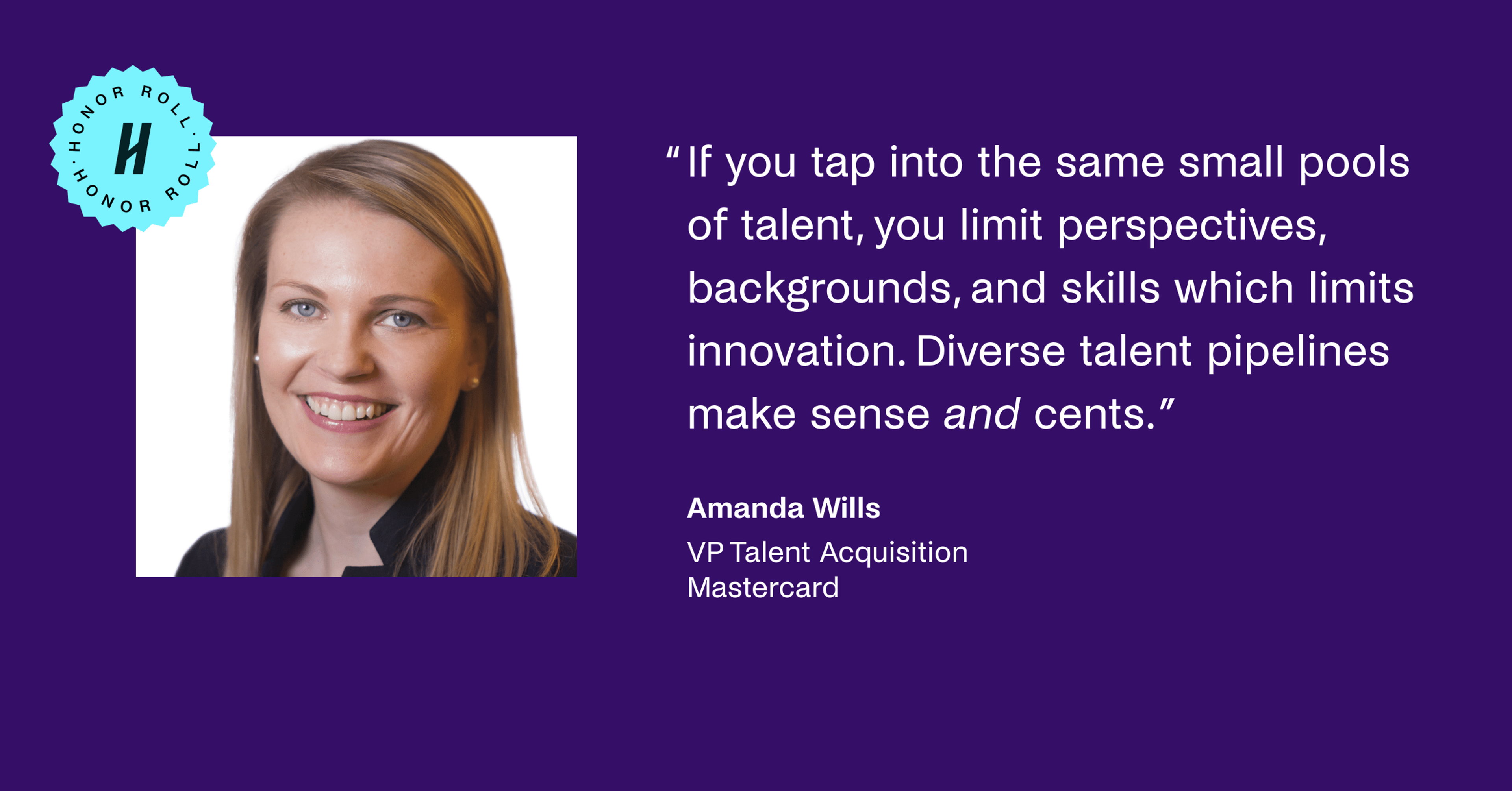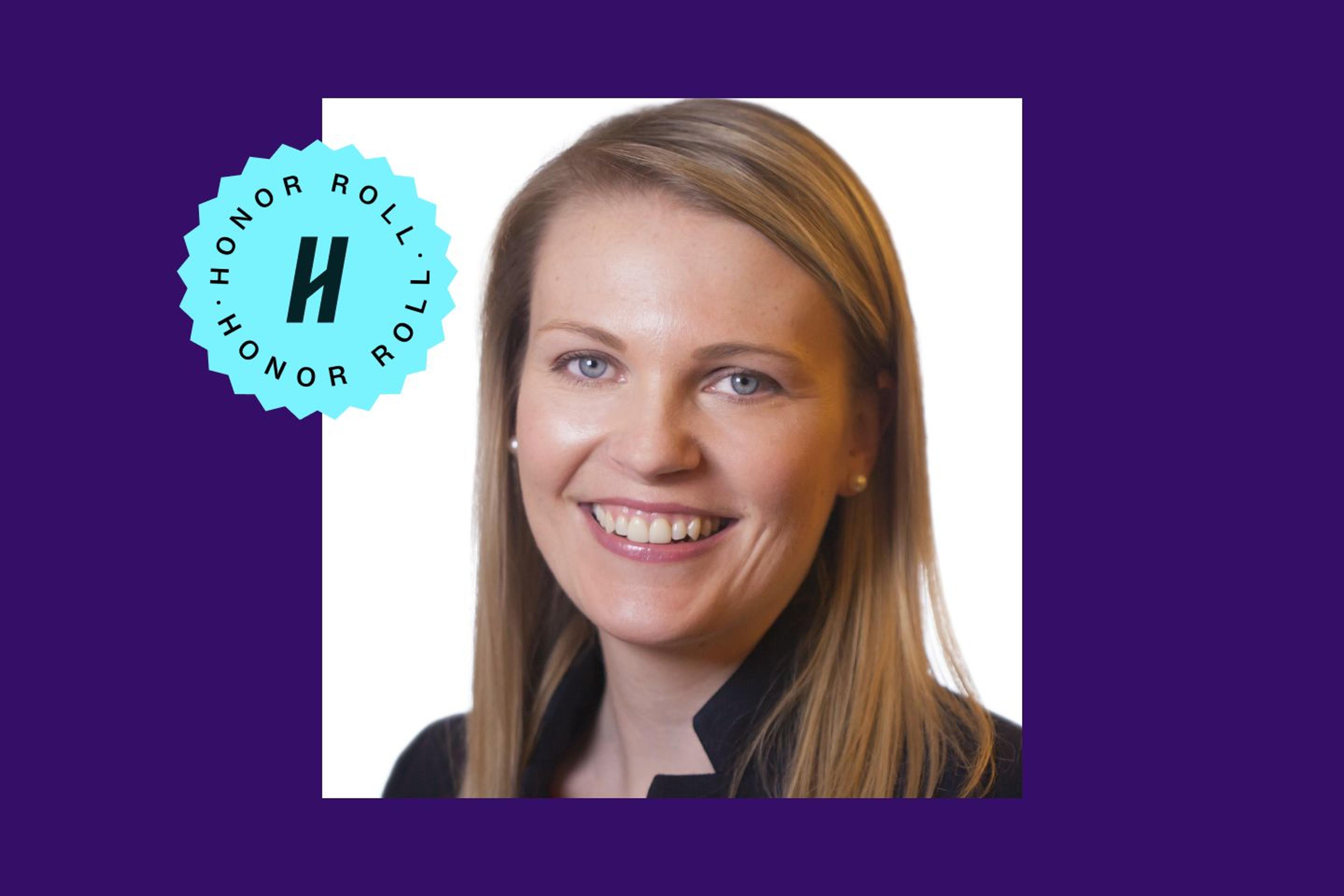Amanda Wills, has built a world-class workforce pipeline at Mastercard. With her passion for diversity, her team is expanding their higher-education partnerships, accessing more qualified candidates who bring with them unlimited perspective, experience, and opportunity. As a data-driven and customer-centric leader, she knows how critical it is that Mastercard's talent is innovating with intention.
Read on to see how her team is hiring future leaders who are transforming the industry (spoiler: including Mastercard's current Vice President of Product Management who started in her internship program).
What’s something you wish you knew going into your first job?
I wish I knew that you don't have to have a 10-year plan or clear vision for your career path from the start. My first job out of college was a two-year program in the non-profit space. That end date was a source of stress. I saw peers settling into roles with more permanence and clear career paths, and I wasn’t sure what I’d do next…but everything worked out! Many of my career opportunities have happened organically, and everyone's path is different. I realize now that no one has a crystal ball, and all I can do is make the right choice for where I’m in that moment.
Why are you passionate about recruiting early talent or increasing DEI?
At Mastercard, we’re deeply invested in Early Career Talent programs and diverse hires because these talent pipelines help us to innovate and deliver best-in-class solutions to our clients. These employees bring big and bold ideas to the table with different perspectives, helping us push boundaries and innovate with intention.
How important is it for businesses to be able to easily connect with the talent at higher education organizations compared to only having a handful of partners?
It’s crucial for organizations to cast a wide net for recruitment and reach as many schools as possible. If you tap into the same small pools of talent, you limit the range of perspectives, backgrounds, and skills that you can bring into an organization, and this has been proven to limit innovation. Not to mention, having a range of diverse talent pipelines makes sense and cents. Many studies show that diverse workforces are more profitable.
What do you think sets your company apart from others when it comes to early talent recruitment programs?
Mastercard is unique in the breadth of roles that we offer. We truly have a role for everyone – Software Engineering and Technology, Management Consulting, Marketing, Product Development, Sales – the list goes on. We encourage internal mobility and have created infrastructure to make it easy for talent to move across teams, projects, and job families. Whether you’re making a career move into a new role or function, or want to get involved with an initiative to grow a specific skill set, Mastercard makes those opportunities available across the organization and encourages employees to take advantage of them.

What are the biggest challenges and opportunities on the horizon for your industry? What could the next generation of leaders bring to the table to help with that?
Mastercard wants to be recognized as more than a credit card company. We want to expand beyond payments and be seen as a big tech player, so our greatest challenge is bringing in talent that can help us grow and scale our services beyond the card. We’re looking for leaders with experience in machine learning, cyber security, fintech, and more to help us expand our brand.
What’s one of your favorite early talent hire success stories?
One of the most rewarding aspects of working in the early career space is seeing employees that you hired as interns or new graduates grow in their careers. There is a sense of pride in knowing I played a small part in opening a door for someone, then watching them get promoted, take on leadership roles, and make an impact. One of the first students I hired as an intern years ago is now a Vice President of Product Management at Mastercard.
What excites you about building a workforce for the future?
There’s been a huge shift in workplace flexibility, and it’s exciting to see Mastercard embracing flex work. Over the last two years, it’s been satisfying to see how well teams have performed with some working from home, some popping into the office, and others working from across the globe using our four weeks of ‘Work From Elsewhere’ benefit. I’m excited to see where flex work takes us.
As candidates move from pipeline to hire, what strategies do your teams use to make sure early talent is attracted to Mastercard?
Our campus recruiting team takes a candidate-centric recruitment approach that includes a hybrid strategy, combining both virtual and in-person events to engage with candidates through their preferred method.
We aim to create a recruiting experience where students can connect directly with employees who are currently in the role or recent hires from their university to allow for an honest perspective on the culture and day-to-day life at Mastercard.
Additionally, we understand that it can be stressful for students to select their first job opportunity after school. As a result, our team is focused on providing an exceptional candidate experience throughout the process by offering interview prep sessions and encouraging students to ask questions at every stage of the recruitment process.
What advice would you offer other leaders who are looking to improve their brand with in-demand talent, early talent, or Gen Z?
It’s critical to show up authentically. This generation of students has been inundated with brand messaging their entire lives and are able to see through performative or inauthentic messaging and communication. From your digital marketing and online brand, to how you show up at career fairs and campus events. Creating opportunities for students to create genuine connections with your brand allows students to see themselves as future employees.
Please join us in congratulating Amanda on this exciting win!
